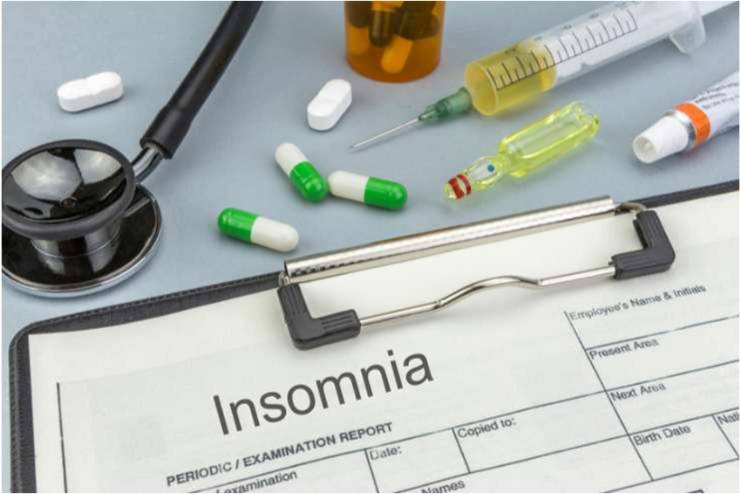Affiliate Disclaimer
Some links in this article are affiliate links. We may earn a small commission if you make a purchase through these links, at no extra cost to you. We only recommend products we find useful to our readersSleep is not only a period of rest but also an essential component in maintaining the body’s metabolic balance. Your body performs crucial functions as you sleep, including tissue regeneration, hormone balancing, and-most importantly-blood sugar regulation. Sleep deprivation upsets this equilibrium by raising blood sugar levels by spiking insulin resistance, the body’s decreased capacity to respond to insulin.
Individuals who have chronic sleep deprivation are more susceptible to type 2 diabetes. The quality and length of sleep affect how efficiently the body metabolizes glucose. Indeed, some research indicates that in otherwise healthy people, a few sleepless nights can resemble prediabetes. This expanding corpus of research highlights one important finding: sleep is a metabolic powerhouse that requires your complete attention and is not to be taken lightly.
The Sleep-Insulin Connection: A Biological Overview
Your sleep cycle is one of the most important things your body does regularly when it comes to maintaining insulin sensitivity. The insulin hormone enables your cells to take up glucose from your blood and use it as fuel. The worst part is that this process depends on getting a decent night’s sleep. Your body adjusts insulin efficiency during deep sleep to ensure cells react appropriately. Your body recalibrates its entire metabolic system when you sleep, which optimizes how you consume and store glucose.
What occurs then if there is a sleep disruption? A situation known as metabolic confusion takes over your body. A single sleep-deprived night can lower insulin sensitivity, meaning your cells don’t take up glucose as well as they should. Glucose intolerance is the resultant condition that raises blood sugar levels. Your body releases stress chemicals like cortisol when sleep loss becomes a routine, exacerbating insulin resistance. Research indicates that just four hours of sleep may cause a thirty percent reduction in insulin sensitivity!
You can compare the interaction between insulin and sleep to a dance. If you skip a few beats, the rhythm is lost, which can result in long-term metabolic disarray and the development of diabetes.
How Sleep Deprivation Increases Insulin Resistance
People who often sleep too little have more issues than being tired and irritable during the day. Lack of sleep raises the chance of significant health issues like type II diabetes and obesity in the long run.
Think of your body as a well-oiled machine that needs sleep to maintain good working order. Sleeping less than six hours a night starts to break down when you deprive that machine of its maintenance. Your body’s ability to use insulin is among the first to malfunction. The first of several hormonal alterations brought on by sleep deprivation is the hormone insulin, which regulates your blood sugar levels. When you don’t get enough sleep, your cells become less sensitive to insulin, which keeps glucose in your bloodstream. Insulin resistance has the potential to develop into prediabetes or possibly diabetes over time.
“Those with diabetes who had poorer quality sleep had worse control over their blood glucose levels,” lead author of study and assistant professor of medicine Kristen Knutson, PhD, said. Individuals with difficulty managing their blood glucose levels are more susceptible to problems. Their standard of living is lower. Additionally, they experience a shortened life expectancy.”
When sleep is lacking, the body also elevates the stress hormone cortisol. An increase in cortisol causes the body to store more glucose in the blood as a means of energy conservation, which exacerbates insulin resistance. This hormonal shift effectively keeps the body in a condition of stress, which stops it from adequately metabolizing sugar.
Insomnia and Diabetes: Is Poor Sleep a Cause or a Symptom?

Diabetes is a very long-term medical condition that impairs glucose metabolism, which raises blood sugar levels. 23% of Americans, or 8.5 million, remain undiagnosed with diabetes, whereas 11.3%, or 37.3 million, have the disease. Taking care of your diabetes entails addressing practices like stress management, eating a balanced diet, and regular exercise that can help control blood sugar levels. Getting enough sleep is also crucial. Adults require an average of at least seven to nine hours of sleep, and children need even more. Studies shows that sleep deprivation raises the risk of diabetes.3. But is it possible for diabetes to lead to insomnia?
The key to the solution is a complex and vicious cycle fueled by both situations. On the one hand, it has been demonstrated that sleep loss, particularly chronic insomnia, impairs the body’s capacity to control blood sugar levels, resulting in insulin resistance. When you don’t get enough sleep, your body releases stress chemicals.
Conversely, diabetes can cause sleep disturbances. Elevated blood sugar levels can lead to thirst, restless legs, and nocturnal urine, complicating falling and staying asleep. Many diabetics experience sleeplessness, which exacerbates the problem by raising insulin resistance. According to Yale Medicine endocrinologist Brian Wojeck, MD, MPH, “Poor sleep is often a factor when it comes to diabetes and obesity.”
The cyclical link between diabetes and insomnia creates a metabolic storm: poor blood sugar control impairs sleep, and poor sleep worsens blood sugar control.
Sleep Strategies to Lower Insulin Resistance

It takes more than simply hitting the bed to improve sleep; you also need to develop routines that maximize the amount and caliber of sleep, ultimately reducing insulin resistance. Establishing a good regular sleep routine is one of the simplest things to do. Maintaining regular sleep and wake time each day helps your body’s internal clock, which helps your body use insulin effectively.
An additional effective tactic is reducing exposure to blue light. This entails putting down your laptop, tablet, and phone at least one hour before going to bed. Blue light disrupts the hormone melatonin, which promotes sleep. Instead of spending time on screens, try relaxation methods like deep breathing or meditation. These can help reduce stress chemicals like cortisol, which link to insulin resistance.
Furthermore, I always appreciate the benefits of a well-timed power sleep. Taking a 20-minute nap during the day can help your body recover from its exertion and lower insulin resistance. In addition to enhancing quality of your sleep overall and lowering cravings for sugary meals that raise blood sugar, meditation, and mindfulness can help you relax more deeply.
To sum up, creating a sleep-friendly environment is crucial. Purchase blackout curtains, maintain a cool atmosphere, and eliminate distractions. The idea is to establish a sleeping environment that allows your body to rest and recharge thoroughly, allowing your insulin levels to remain under control.
When to See A Professional Help for Sleep Issues and Diabetes

Sleep problems can eventually turn from being a minor annoyance to a significant health risk, particularly if you have diabetes. A disorder that interferes with getting enough sleep is called a sleep disorder. Your quality of life, as well as your bodily and mental health, may suffer as a result of these conditions. They may eventually result in melancholy, irritability, anxiety, and moodiness. You might have trouble focusing and remembering things, leading to issues at work and home. It could be time to get professional assistance if you have serious problems sleeping.
Breathing pauses occur when a person has sleep apnea. Apneas are periods of non-breathing brought on by an obstruction of the upper airway. Low blood oxygen levels result from sleep apnea because air cannot reach the lungs due to obstructions. The low oxygen levels also impact the heart and brain.
Sustaining sleeplessness is another red flag. If you routinely get less than six hours of sleep and notice elevated blood sugar levels, you may hinder your efforts to manage your diabetes. Hormonal abnormalities brought on by insomnia can make it more difficult for your body to control glucose levels.
Furthermore, if you’re having problems sleeping combined with symptoms like excessive exhaustion, impaired vision, or frequent urination, your blood sugar levels may be out of control. In these situations, see a healthcare professional right away.
Conclusion
Sleep is the unsung hero in the fight against insulin resistance and diabetes. A good healthy diet and regular exercise are essential, but getting enough sleep is vital to keeping everything together. Prioritizing regular, deep sleep can significantly enhance your body’s capacity to control blood sugar. It lowers your risk of insulin resistance and other issues related to diabetes. Think of sleep as the final piece in the puzzle; without it, even the best-laid health regimens would not function as well.
References
- https://www.ncbi.nlm.nih.gov/pmc/articles/PMC9036496/
- https://www.ncbi.nlm.nih.gov/pmc/articles/PMC3767932/
- https://www.uchicagomedicine.org/forefront/news/2015/february/new-study-helps-explain-links-between-sleep-loss-and-diabetes
- https://www.ajmc.com/view/research-reveals-link-between-sleep-deprivation-and-rising-insulin-resistance-in-women
- https://www.sleepfoundation.org/physical-health/lack-of-sleep-and-diabetes
- https://www.sleepfoundation.org/physical-health/sleep-and-blood-glucose-levels
- https://www.webmd.com/diabetes/sleep-affects-blood-sugar
- https://www.ajmc.com/view/research-reveals-link-between-sleep-deprivation-and-rising-insulin-resistance-in-women
- https://www.uchicagomedicine.org/forefront/news/2011/may/insomnia-linked-to-high-insulin-resistance-in-diabetics
- https://academic.oup.com/jcem/article/95/6/2963/2598810
- https://edition.cnn.com/2012/10/15/health/sleep-insulin-resistance/index.html
- https://www.yalemedicine.org/news/sleep-diabetes-and-obesity
- https://www.verywellhealth.com/diabetes-and-insomnia-5218041
- https://www.everydayhealth.com/type-2-diabetes/sleep-whats-the-connection/
- https://www.diabetes.org.uk/guide-to-diabetes/life-with-diabetes/sleep-and-diabetes
- https://www.healthline.com/health/diabetes/diabetes-and-sleep
- https://www.ncbi.nlm.nih.gov/pmc/articles/PMC4478581/
- https://www.eatingwell.com/article/8043147/best-ways-to-sleep-better-diabetes/
- https://diatribe.org/diabetes-management/sleep-most-forgotten-blood-sugar-strategy
- https://www.healthline.com/health/type-2-diabetes/top-sleep-tips
- https://academic.oup.com/sleep/article-abstract/38/5/707/2416915?redirectedFrom=fulltext
- https://www.healthline.com/health/diabetes/diabetes-and-sleep
- https://www.webmd.com/diabetes/type-2-diabetes-sleep
- https://www.webmd.com/sleep-disorders/when-to-call-doctor
In this Article




















